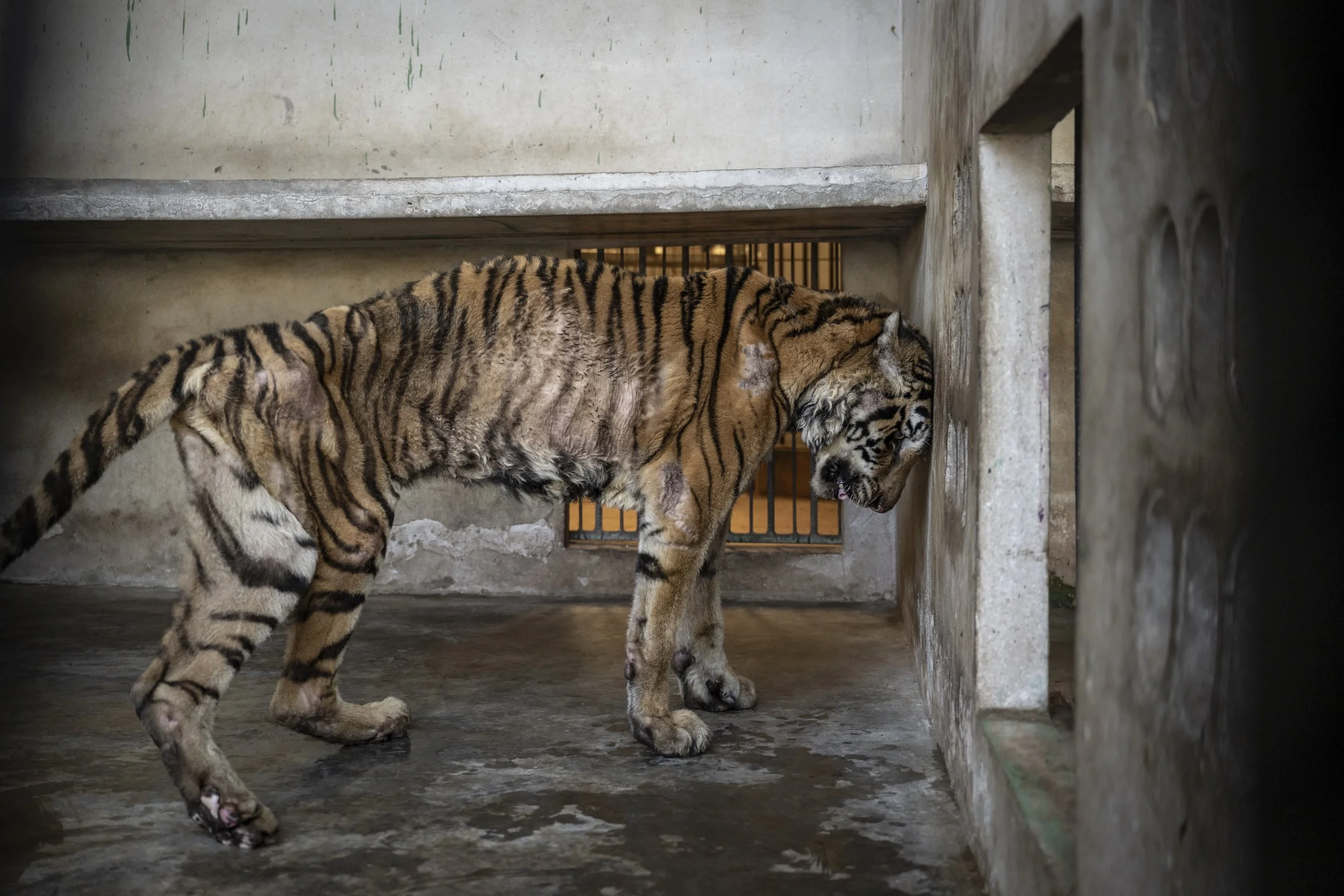S13. E12: Amy Jones: Skin and Bones
“It was a really surreal experience because I didn’t know what to expect from a tiger farm. I’ve been in a lot of industrial farms of other animals. I sort of thought to myself, ‘surely it can’t be, it can’t be actually a farm like what we see, how we raise pigs and chickens and cows.’ But it was it was literally a factory farm - a prison, essentially just row after row after row of tiger.”
There are moments when a single photograph can change how we see the world. For photojournalist Amy Jones that moment came inside a dark, airless building on the border of Thailand at a tiger farm.
That's where she met Salamas, a 20-year-old tiger who had spent her entire life in a concrete cell. Bred over and over again for the tourist and medicine trades. Amy's photograph of Salamas, a tiger who was skin and bones pressing her head against a cold wall, has gone on to win some of the most prestigious awards in photography, and brought international attention to an industry that almost no one knew existed, the factory farming of tigers.
Photo: Amy Jones, Wildlife Friends Foundation.
This conversation is about the rescue of that tiger, about the power of visual storytelling and what it means to bear witness even when it breaks your heart.
Please listen and share,
In gratitude,
Elizabeth Novogratz
Amy Jones: https://www.amyrjones.com/about
Moving animals: https://www.movinganimals.org/
Wildlife Friends Foundation: https://www.wfft.org/
Natural History Museum: https://www.nhm.ac.uk/wpy/gallery/2025-skin-and-bones
Become a Species Unite member!
You can listen to our podcast via our website or you can subscribe and listen on Apple, Spotify, or Google Play. If you enjoy listening to the Species Unite podcast, we’d love to hear from you! You can rate and review via Apple Podcast here. If you support our mission to change the narrative toward a world of co-existence, we would love for you to make a donation or become an official Species Unite member!
As always, thank you for tuning in - we truly believe that stories have the power to change the way the world treats animals and it’s a pleasure to have you with us on this.

